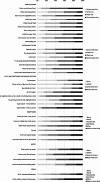Adherence to the Mediterranean Diet and its association with sustainable dietary behaviors, sociodemographic factors, and lifestyle: a cross-sectional study in US University students
- PMID: 38797846
- PMCID: PMC11129378
- DOI: 10.1186/s12937-024-00962-0
Adherence to the Mediterranean Diet and its association with sustainable dietary behaviors, sociodemographic factors, and lifestyle: a cross-sectional study in US University students
Abstract
Background: Promoting healthy and sustainable diets is increasingly important and the Mediterranean Diet (MD) has been recognized as an appropriate example that can be adapted to different countries. Considering that the college years are the time when US young adults are most likely to adopt unhealthy eating habits, the present study assessed adherence to the MD and the sustainability of dietary behaviors in a nationally representative sample of US university students, aiming to identify crucial levers for improving their eating behaviors.
Methods: MD adherence and the adoption of healthy and sustainable dietary patterns were assessed through the KIDMED and the Sustainable-HEalthy-Diet (SHED Index questionnaires, respectively, administered through an online survey that also included sociodemographic and behavioral questions. Non-parametric and logistic regression analyses were performed.
Results: A sample of 1485 participants (median (IQR) age 21.0 (19.0-22.0); 59% women) correctly completed the survey. A medium adherence to the MD was the most prevalent (47%). According to multivariate logistic regression analysis, the likelihood of being more compliant with the MD increased when meeting physical activity recommendations, having a high SHED Index score, having the willingness to purchase and eat healthy and sustainable dishes, eating ultra-processed plant-based meat alternatives foods daily, and regularly attending the university canteen.
Conclusions: Encouraging dietary patterns rich in plant-based foods and with a moderate intake of animal products is crucial to increasing the adoption of healthy and sustainable diets, and university dining services represent a suitable setting to build a supportive environment that educates students on human and planetary health.
Keywords: College students; Food behavior; Healthy eating; Survey; Sustainable diet; Young adults.
© 2024. The Author(s).
Conflict of interest statement
The authors declare no competing interests.
Figures
Similar articles
-
A Nationwide Survey of Italian University Students: Exploring the Influences of Sustainable Dietary Behaviors, Lifestyle, and Sociodemographic Factors on Adherence to the Mediterranean Diet.Nutrients. 2025 Jun 12;17(12):1988. doi: 10.3390/nu17121988. Nutrients. 2025. PMID: 40573099 Free PMC article.
-
Evaluation of university students' Mediterranean diet quality and sustainable eating behaviors: a cross-sectional study.Int J Environ Health Res. 2025 Jan;35(1):245-256. doi: 10.1080/09603123.2024.2386116. Epub 2024 Jul 30. Int J Environ Health Res. 2025. PMID: 39078611
-
Adherence to the Planetary Health Diet and Its Association with Diet Quality and Environmental Outcomes in Croatian University Students: A Cross-Sectional Study.Nutrients. 2025 May 29;17(11):1850. doi: 10.3390/nu17111850. Nutrients. 2025. PMID: 40507119 Free PMC article.
-
Evaluating Mediterranean diet adherence in university student populations: Does this dietary pattern affect students' academic performance and mental health?Int J Health Plann Manage. 2020 Jan;35(1):5-21. doi: 10.1002/hpm.2881. Epub 2019 Sep 12. Int J Health Plann Manage. 2020. PMID: 31514237 Review.
-
Dietary Habits of Young Poles and Their Selected Determinants: A Review and Implications for Public Health.Nutrients. 2024 Oct 21;16(20):3561. doi: 10.3390/nu16203561. Nutrients. 2024. PMID: 39458555 Free PMC article. Review.
Cited by
-
Evaluation of the relationship between nutrition literacy, Mediterranean diet compliance, ecological footprint and sustainable environmental attitudes in adolescents.BMC Public Health. 2025 Jan 13;25(1):130. doi: 10.1186/s12889-024-20910-1. BMC Public Health. 2025. PMID: 39800704 Free PMC article.
-
A Nationwide Survey of Italian University Students: Exploring the Influences of Sustainable Dietary Behaviors, Lifestyle, and Sociodemographic Factors on Adherence to the Mediterranean Diet.Nutrients. 2025 Jun 12;17(12):1988. doi: 10.3390/nu17121988. Nutrients. 2025. PMID: 40573099 Free PMC article.
-
Mediterranean Food Pattern Adherence in a Female-Dominated Sample of Health and Social Sciences University Students: Analysis from a Perspective of Sustainability.Nutrients. 2024 Nov 14;16(22):3886. doi: 10.3390/nu16223886. Nutrients. 2024. PMID: 39599672 Free PMC article.
-
Meat consumption among different social groups and specific options for reducing it: a literature review of empirical research.Front Sociol. 2025 May 23;10:1547663. doi: 10.3389/fsoc.2025.1547663. eCollection 2025. Front Sociol. 2025. PMID: 40487004 Free PMC article. Review.
-
Mediterranean Diet and Ultra-Processed Food Intake in Older Australian Adults-Associations with Frailty and Cardiometabolic Conditions.Nutrients. 2024 Sep 3;16(17):2978. doi: 10.3390/nu16172978. Nutrients. 2024. PMID: 39275293 Free PMC article.
References
-
- Pallardy RIPCC, Report Analysis. The Top Five Measures to Halve Emissions by 2030 | Journey to Zero. https://journeytozerostories.neste.com/sustainability/ipcc-report-analys... (2022). Accessed 19 Jul 2022.
-
- Poore J, Nemecek T. Reducing food’s environmental impacts through producers and consumers. Sci (1979) 2018;360:987–92. - PubMed
-
- Crippa M, Solazzo E, Guizzardi D, Monforti-Ferrario F, Tubiello FN, Leip A. Food systems are responsible for a third of global anthropogenic GHG emissions. Nature Food 2021 2:3. 2021;2:198–209. - PubMed
MeSH terms
LinkOut - more resources
Full Text Sources



